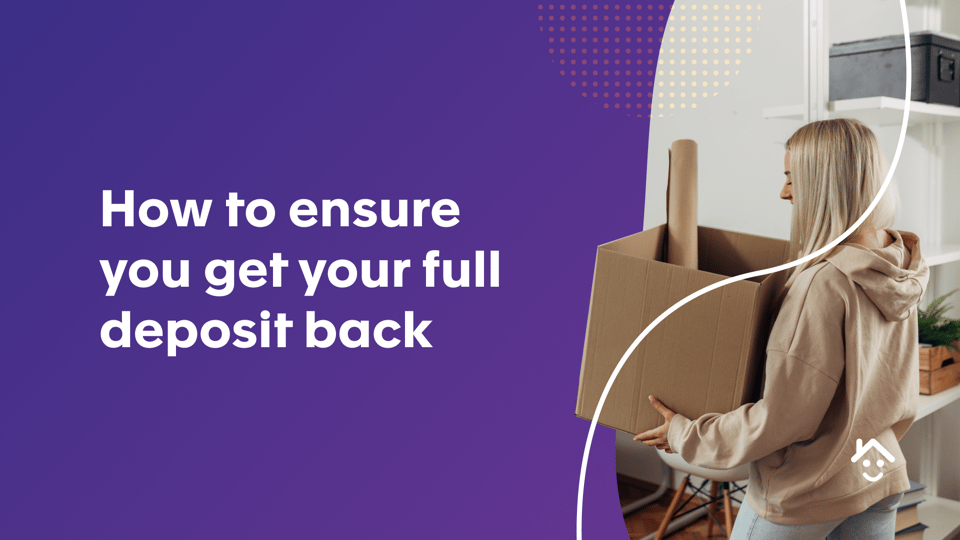How to ensure you get your full deposit back

Moving out can be a really busy time, and a stressful one at that. Once you are out of your accommodation, you are going to want to make sure you have left everything in such a way that ensures you get your full deposit back.
Here are some of the big things you need to remember to do before you leave to maximise your chances of getting the full amount back!
Understand Your Tenancy Agreement
This may be less applicable if you are about to leave but keep this in mind for your next property: Before you even move in, take time to thoroughly read and understand the tenancy agreement. This document outlines your responsibilities as a tenant, and will include a dedicated section on what is expected of you when you move out. This is where you should pay special attention to what requirements they have regarding cleaning, repairs, and deposit deductions. Knowing what’s definitely required of you from the start can save you a lot of hassle later.
Take Lots of Photos & Check the Inventory
When you first move in, your landlord should provide an inventory of everything within the flat. For more information regarding inventories, check out our guide.
Whilst the inventory should be looked over and kept safe, you should also create your own document. This should contain the condition of the property with photos and detailed notes. This can include things from chips in the paint to broken items. This evidence will be important if there are disputes later about the state of the accommodation when you moved out. Having this record ensures that you can’t be blamed and charged for anything that occurred before your move in date.
Clean Clean Clean
This is probably the most common reason people aren’t able to get their full deposits back. This is insufficient cleaning. Before you move out, give the accommodation a deep clean. Not just a mop of the floors and done. This includes:
- Kitchen: Clean all appliances (fridges, microwaves, ovens), cupboards (inside and out), surfaces, and floors.
- Bathrooms: Scrub tiles, fixtures, mirrors, wash floors, limescale remover on fixtures
- Bedrooms and Living Areas: Dust all surfaces, clean windows, vacuum carpets, and mop hard floors. This includes behind and under furniture!
This is also where you should refer to your tenancy agreement. Some landlords require extra details such as washing and dry cleaning curtains, or replacing certain things such as toilet brushes so check that document!
Fix Small Damages
Minor wear and tear is usually expected and this will be taken into consideration by the landlord. However, you should repair any damages you’ve caused. This might include filling small nail holes in walls, replacing light bulbs, or fixing broken handles. These are often quite quick fixes, and will be a lot more cost-effective to do yourself rather than have your landlord charge you for them to do it.
Broken something that you can’t handle on your own? Check out our blog on what to do in this situation.
Remove All Your Personal Belongings
When leaving for the last time, take a good look behind you. You need to make sure that all your belongings are removed from the property. This can be anything big and small, and they are often quite strict on this so make sure there aren’t any rogue socks in any drawers! Landlords can charge for the removal of any leftover items, so double-check every nook and cranny to make sure nothing is left behind.
Those are our top tips, but remember your requirements will be personal to you and your tenancy so check your agreements and happy moving!
Want more information on how to make moving out run smoothly? Visit our guide.
You can find your next student home on our website too!



